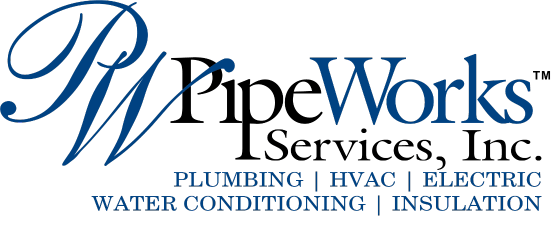Trying to keep your home cool during the summer always comes at a fairly high cost due to the amount of energy it takes to run your air conditioning. The best way to lower your AC bills is to upgrade to a more energy-efficient cooling system, but this requires a major investment that may strain your budget. You can also set your thermostat much higher, but then you won’t be as comfortable. Luckily, taking these six basic steps can keep your AC bills significantly lower without requiring a major expense or negatively impacting your comfort.
1. Have Your AC System Professionally Serviced
Just as your vehicle requires regular maintenance, you need to keep your AC system well maintained to get the most out of it. Without regular professional maintenance, an AC system will always develop certain issues that make it cool less effectively and decrease its energy efficiency.
For instance, dirt and dust tend to accumulate on the condenser coil. If the coil is too dirty, it can make your AC bills up to 30% higher. A dirty evaporator coil can also lead to a significant rise in your AC bills.
AC maintenance involves a variety of other things in addition to cleaning the coils. Checking the refrigerant level is important since an AC system can’t cool nearly as well if the refrigerant level is low. If the level is much too low, it will prevent the system from cooling at all.
Not only will a professional maintenance service help keep your AC bills lower by ensuring the system cools effectively, but it can also help you avoid a breakdown during the summer. That’s because the technician will inspect and test everything to make sure there are no problems that could lead to a breakdown. They can then resolve any issues that exist so that you avoid something going wrong and your AC suddenly not being able to run.
2. Replace the AC Air Filter
A dirty air filter typically results in an AC system working somewhere between 5% and 15% less efficiently, according to the U.S. Department of Energy (DOE). If the air filter is extremely dirty and almost completely clogged, it can restrict airflow so much that your AC costs spike even more. A dirty filter also often results in some rooms never receiving sufficient airflow and always being hotter.
Air filters typically last for around 90 days before they need replacing because they’re clogged and restricting the incoming airflow. However, replacing your AC air filter every 90 days is just a general recommendation. Filters with higher efficiency ratings work better at trapping dust and debris and will clog faster. Pet hair also causes air filters to clog much faster.
The best way to prevent a dirty filter from causing your AC bills to rise is to check its condition monthly. If the face is covered in hair and debris or the filter is starting to turn dark, replace it as soon as you can.
3. Set Your Thermostat Back During the Day
One of the easiest ways to lower your AC bills is by leaving your thermostat set a few degrees higher during the day when no one is home. You’ll usually lower your energy bills by around 1%-3% for every degree higher you set your thermostat. Of course, this is if you always leave your thermostat set 1 degree higher.
Nonetheless, turning the temperature up by 3-5 degrees for just eight hours a day still results in noticeable savings. It’s usually not a good idea to turn the thermostat up by more than 4-5 degrees. If you do this, your AC could end up using more energy due to how long it will have to run to cool your house once you turn the temperature back down.
Programming your thermostat is always better than just turning the temperature up when you leave and back down when you get home. You won’t need to worry about forgetting to turn the temperature up or your house being too hot when you get back.
4. Use a Smart Thermostat
Smart thermostats have repeatedly been shown to provide better results than standard programmable thermostats in terms of energy savings. According to the U.S. Environmental Protection Agency (EPA), using a smart thermostat will usually lower your AC bills by around 8%-12%. One reason smart thermostats are superior is that most of these devices can learn and then adjust the temperature settings based on your routines.
One way they can learn is by monitoring your Wi-Fi network to see if any phones that have the thermostat app installed are connected. This allows the thermostat to find out when everyone goes to work and returns home. They can also use their motion sensor to learn the times when no one is typically home for an extended period.
The thermostat will then start to automatically set the temperature higher at these times. If no phones are connected or the motion sensor doesn’t detect movement for a certain amount of time, it will also go into Away mode and increase the temperature.
5. Seal Air Leaks Around Doors and Windows
Leaky windows and doors will always cause your AC bills to be at least a bit higher because of how much hot air they allow inside. If your house has a large number of air leaks or old single-pane windows, it can result in your AC bills being 20%-30% higher.
You can check for leaks by feeling around door and window frames to see if hot air is coming in. If you find any leaks, remove the old caulk in that area, and then re-caulk the frame. Also, inspect your exterior doors to see if light is shining in anywhere between the door and the frame. If you can see light, you’ll need to replace the weather stripping to seal the leak. You should also check the weather stripping on your windows to make sure none of it is cracked or missing.
Older homes usually have significant issues with air leaks and insufficient insulation. This is where professional duct sealing and weatherization are beneficial: They can make your home significantly more energy efficient, so your AC and heating bills are much lower.
6. Close Your Curtains and Blinds
Another thing that will always lead to your AC bills being higher is leaving the curtains and blinds on west- and south-facing windows open during the day. If left uncovered, these windows can be a massive source of solar heat gain due to the amount of direct sunlight they allow in.
Approximately 76% of the direct sunlight that hits double-pane windows enters and releases heat. With single-pane windows, this percentage is much higher. Covering the windows blocks out the sunlight and greatly reduces solar heat gain.
Keeping south-facing windows covered is especially important since they receive direct sunlight throughout almost the entire day. East-facing windows receive sunlight only in the morning and don’t really contribute to heat gain, and north-facing windows always remain shaded by the house and don’t let in any direct sunlight. That means you can leave east- and north-facing windows uncovered without them making your house hotter.
As the leading home service company in Chatham, NJ, Pipe Works Services has what it takes to help you keep cool for less. From AC maintenance, repairs and installation to insulation, air sealing and weatherization, we’re ready to help with whatever you need to beat the heat.
To schedule service, contact our team at Pipe Works Services today.





